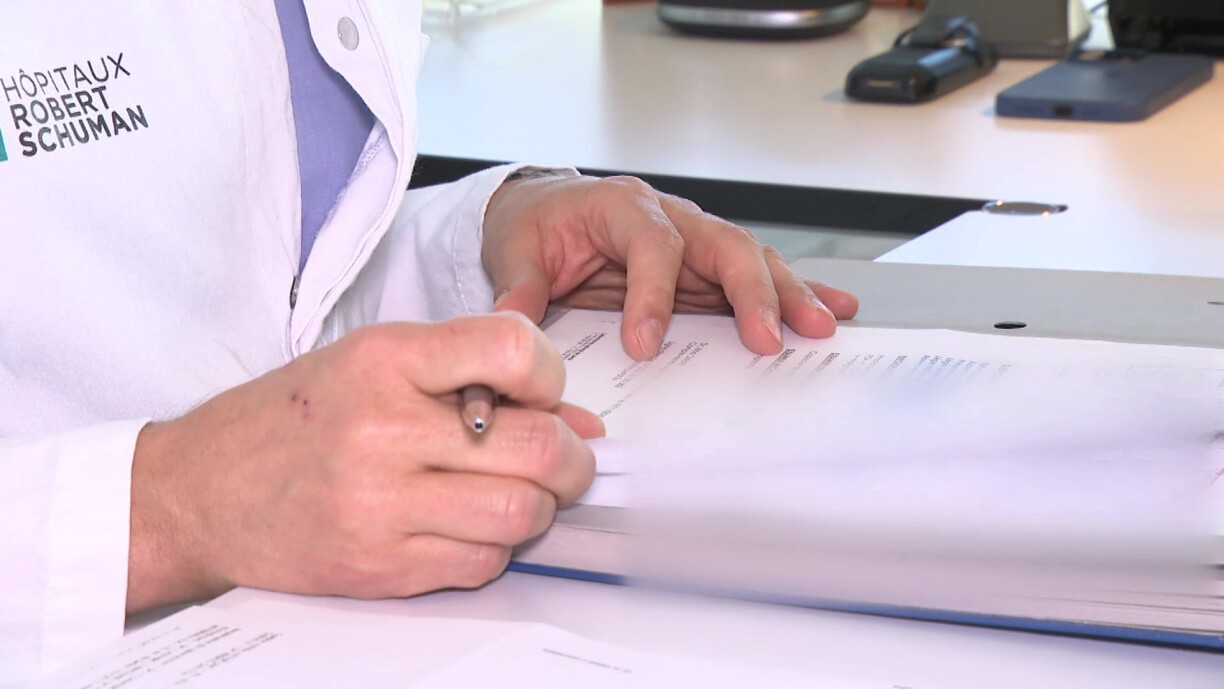
In the continuation of his interview with RTL, AMMD President Dr Chris Roller stated that the current convention with the CNS, in its present form, is no longer acceptable to the association.
Dr Roller reassured the public that talk of a complete withdrawal from any agreement with the CNS should not be interpreted as the AMMD abandoning the convention system altogether. He stressed that the association has no intention of leaving patients without a framework for reimbursement.
The termination of the existing convention, together with the AMMD’s call for tariff autonomy and the possibility of selective rather than automatic conventions with the CNS, triggered strong criticism, including from hospital doctors within their own ranks. The AMMD now emphasises that it wants to preserve Luxembourg’s solidarity-based model and intends to keep the CNS system as the foundation of healthcare coverage.
According to Dr Roller, what the association seeks is a solid, modernised convention that guarantees reliable basic care and ensures the continued functioning of a solidaristic system.
The AMMD’s main objection concerns the current rule under which all doctors are automatically conventioned once authorised to practise. Dr Roller argued that this automatic process does not promote quality, especially in cases where qualifications obtained in third countries may require closer verification. He pointed to concerns about dentists who work only a few days per month in Luxembourg private clinics, where continuity and quality of care may not always be assured.
He said that, in the association’s view, a convention should act as a mark of quality: when a patient consults a conventioned doctor, they should have the assurance that they will receive appropriate medical care. He added that the convention should also be removable in cases of serious professional error. A doctor who loses the convention would remain authorised to practise, but patients would naturally avoid non-conventioned practitioners, as consultations would no longer be reimbursed.
Selective conventioning should also work in the opposite direction, Dr Roller explained. Doctors should be allowed to work outside the convention for new procedures or treatments for which the CNS has not yet defined a tariff, a process that can sometimes take up to a decade. Dr Roller added that the AMMD is not seeking a system in which every doctor sets their own consultation prices. Rather, he said, it wants patients to have access to new and innovative medical methods without having to travel abroad simply because no CNS tariff exists yet.
Until a tariff is formally approved, doctors would like the possibility to set a provisional fee “with tact and measure”, potentially in consultation with the Collège médical, which would ensure that real costs are appropriately reflected. The CNS could then decide whether the treatment should be reimbursed. Dr Roller argued that physicians should be able to offer treatments that go beyond what the CNS classifies as “useful and necessary”, so that Luxembourg can remain medically innovative rather than forcing patients to seek modern care abroad.
For non-essential treatments, such as laser eye surgery, tooth whitening, or new procedures not yet covered by the CNS, private health insurance would take on the cost, Dr Roller suggested. He noted that, given steadily rising public insurance contributions, it is legitimate to ask whether patients truly benefit from paying more into the CNS when private insurers could offer additional coverage.
Critics fear this would effectively create a two-tier healthcare system. Dr Roller rejected that interpretation, arguing that inequalities already exist in practice, calling this criticism “dishonest”.
To illustrate his point, he referenced US politician Nancy Pelosi arriving in the emergency department after an injury incurred during a visit to Luxembourg: Pelosi, he said, would never wait eight hours like an ordinary patient. He added that some people already travel to Germany for faster MRI appointments or rely on personal connections to obtain quicker access.
Dr Roller admitted that the AMMD could have communicated its position more clearly at the outset. Nevertheless, he welcomed the fact that a nationwide debate on healthcare policy is finally taking place. In his view, the moment has come for doctors to sit together, avoid fragmentation within the profession, and work towards meaningful improvements for patients, healthcare providers, and the system as a whole.